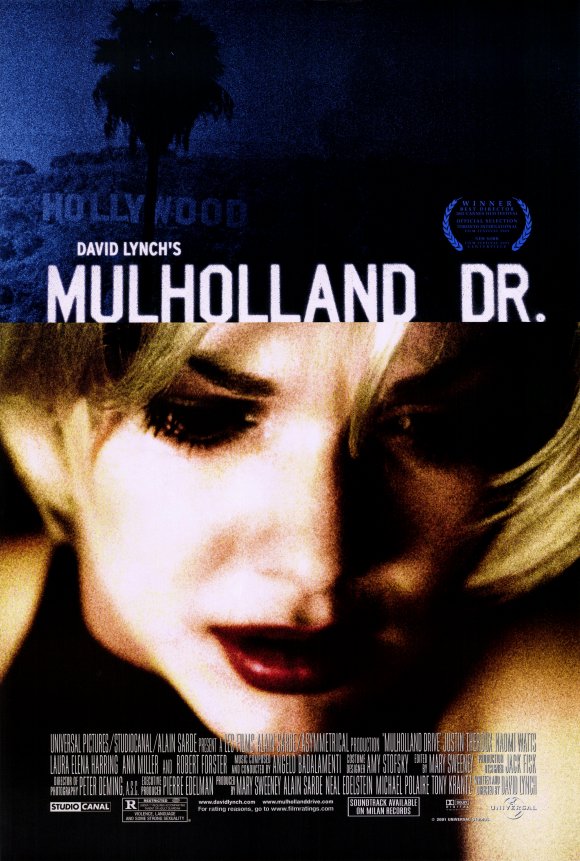a few questions
6.0
(spoilers ahead)
To those who think Diane has Camilla killed:
How do you explain the fact that the murder of Camilla is not the first thing Diane thinks of after she wakes up ?
And why does Diane need the strange blue key lying on the table - and looking at it for such a long time - to make her finally "remember" that she had Camilla killed. Why doesn't she know it right away ? Why is Diane looking at the blue key for such a long time a substantially reliable evidence of her evil deed ?
If it's her guilty conscience that triggers her suicide - as many of you suggest - why does it take so long for her even to realise the fact that she hired a hitman (not to mention the later, necessary realisation of an evil deed that she can't live with to such an extent that suicide is the only answer for her).
Does Lynch show all the flashbacks (couch sex, movie set, masturbation, dinner part etc.) to Diane or to us ? I don't think Lynch wants to show US the flashbacks as a story told. If so, he could just have had Diane wake up, remember the killing and have her kill herself. Why didn't he just do that and leave it there ?
And why would the flashbacks make Diane more aware of her evil deed than if the flashbacks were not there. Why would the flashbacks make a difference for her realisation of the facts of the case ? Why should we believe that the flashbacks are her TRUE memories dawning upon her, when she can't even remember things correctly immediately after waking up ?
He shows the flashbacks to Diane, and if she had Camilla killed, WHY would he need her to go through all these flashbacks to arrive at a conclusion that apparently caused her suicide ?
"Now that I have had a chance to think about it for 15 minutes, I realise that I actually had her killed. I didn't know when I woke up, but now I know" is a totally silly presumption.
And what exactly is it that triggers her "memory" of the evil deed at this precise point in her life - 3 weeks after something that happened and which the neighbour refers to ?
Is it not likely that hallucinating the smiling Camilla in the kitchen rather would make her remember an evil deed than a shabby, old, blue key on a table ?
And the image of Camilla's smile doesn't make her remember an evil deed.
It just doesn't make any sensible sense, says I, Colombo and Mason, because she didn't commit an evil deed.
"Well, just stop for a little second and think about it. Will you do that for me?"
To those who think Diane has Camilla killed:
How do you explain the fact that the murder of Camilla is not the first thing Diane thinks of after she wakes up ?
And why does Diane need the strange blue key lying on the table - and looking at it for such a long time - to make her finally "remember" that she had Camilla killed. Why doesn't she know it right away ? Why is Diane looking at the blue key for such a long time a substantially reliable evidence of her evil deed ?
If it's her guilty conscience that triggers her suicide - as many of you suggest - why does it take so long for her even to realise the fact that she hired a hitman (not to mention the later, necessary realisation of an evil deed that she can't live with to such an extent that suicide is the only answer for her).
Does Lynch show all the flashbacks (couch sex, movie set, masturbation, dinner part etc.) to Diane or to us ? I don't think Lynch wants to show US the flashbacks as a story told. If so, he could just have had Diane wake up, remember the killing and have her kill herself. Why didn't he just do that and leave it there ?
And why would the flashbacks make Diane more aware of her evil deed than if the flashbacks were not there. Why would the flashbacks make a difference for her realisation of the facts of the case ? Why should we believe that the flashbacks are her TRUE memories dawning upon her, when she can't even remember things correctly immediately after waking up ?
He shows the flashbacks to Diane, and if she had Camilla killed, WHY would he need her to go through all these flashbacks to arrive at a conclusion that apparently caused her suicide ?
"Now that I have had a chance to think about it for 15 minutes, I realise that I actually had her killed. I didn't know when I woke up, but now I know" is a totally silly presumption.
And what exactly is it that triggers her "memory" of the evil deed at this precise point in her life - 3 weeks after something that happened and which the neighbour refers to ?
Is it not likely that hallucinating the smiling Camilla in the kitchen rather would make her remember an evil deed than a shabby, old, blue key on a table ?
And the image of Camilla's smile doesn't make her remember an evil deed.
It just doesn't make any sensible sense, says I, Colombo and Mason, because she didn't commit an evil deed.
"Well, just stop for a little second and think about it. Will you do that for me?"
02/10-2003
